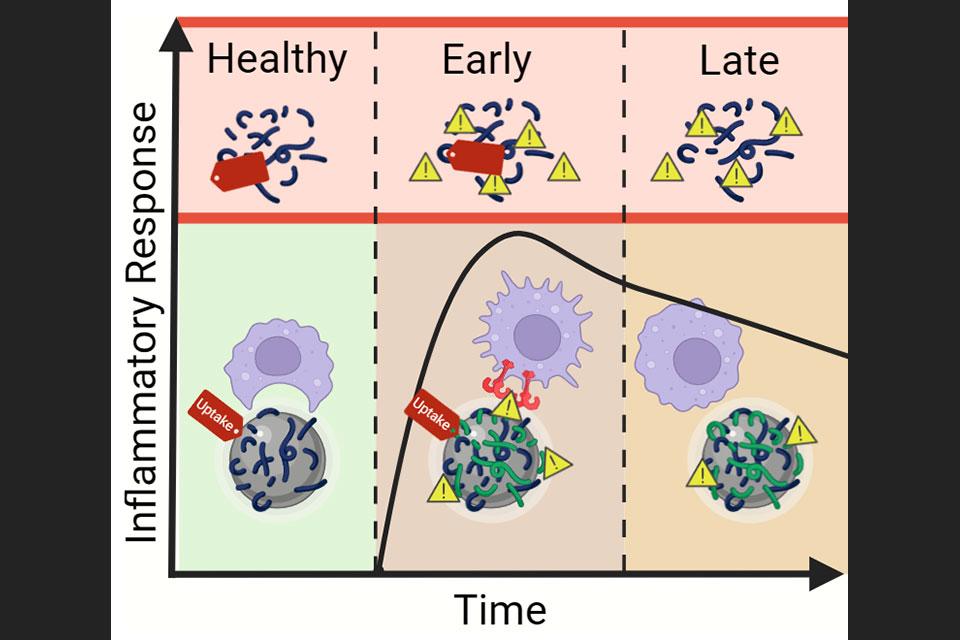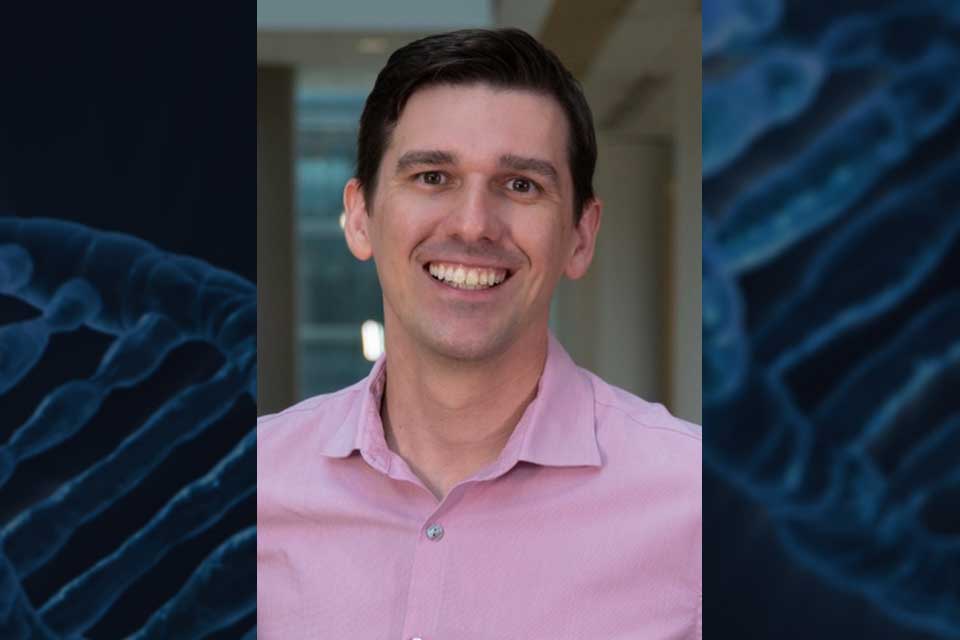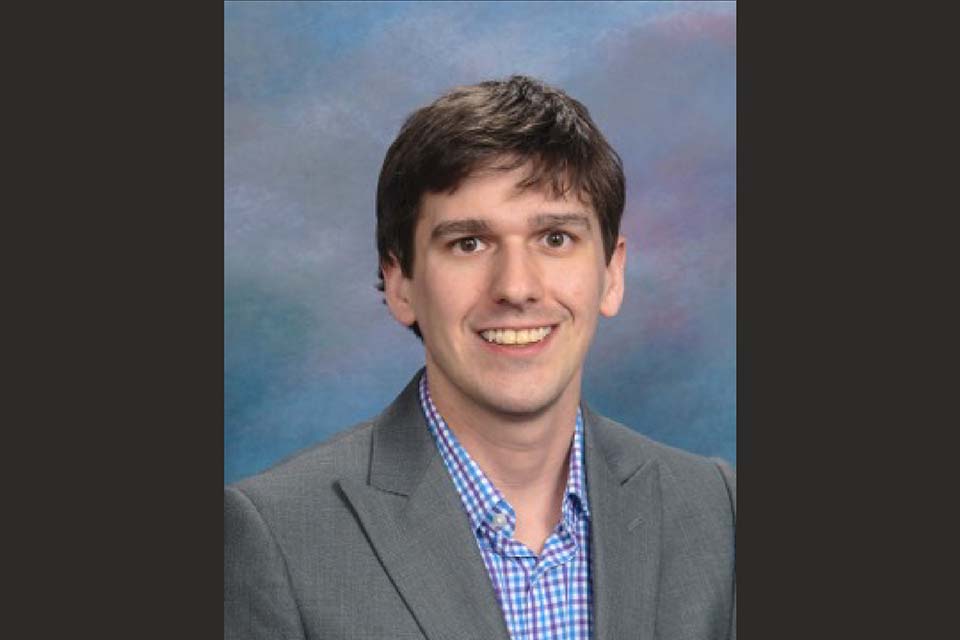UMSOP Faculty Awarded $3.4 Million NIH Grant to Develop Innovative Nanoparticle Immunotherapy for Sepsis
Researchers are developing a novel therapy using safe, drug-free nanoparticles to aid the body in fighting sepsis more effectively.

By Pam Carder
June 13, 2025
Ryan Pearson, PhD, associate professor of pharmaceutical sciences and director of the Bio- and Nano-Technology Center at the University of Maryland School of Pharmacy (UMSOP), has been awarded a prestigious $3.4 million grant from the National Institutes of Health (NIH) to advance groundbreaking research into a first-in-class, cargo-free nanoparticle immunotherapy for the treatment of sepsis.
Sepsis is a life-threatening condition caused by an uncontrolled immune response to infection. According to Pearson’s proposal abstract, sepsis accounts for nearly 20% of all deaths globally, with survivors often suffering long-term health complications such as cardiovascular disease and cognitive impairment. Existing treatments have been hampered by sepsis’ clinical heterogeneity (diversity) and the complexity of its immune dysregulation.
Pearson’s project aims to overcome these challenges by developing immunomodulatory nanoparticles (iNPs), a ’drug-free’ class of biocompatible poly(lactic acid) nanoparticles designed to modulate multiple aspects of innate immunity. Prior studies from Pearson’s team have demonstrated that iNPs significantly improve survival in mouse models of sepsis by reducing proinflammatory responses, preserving critical immune cells, and enhancing bacterial clearance, especially when combined with antibiotics.
“This grant is a strong validation of our innovative approach, which has been years in the making,” said Pearson. “Our iNPs leverage both their physical nanoparticle structure and compositional properties to target multiple immune pathways simultaneously — a strategy necessary to address sepsis’ complex immune dysregulation.”
Pearson notes that the research will unfold in two key phases. The first focuses on optimizing nanoparticle design and elucidating the cellular and molecular mechanisms by which iNPs modulate immune responses. The second phase aims to define the optimal dosing and therapeutic window using clinically relevant polymicrobial sepsis models, assessing impacts on organ function and survival.
“This project could transform sepsis treatment by providing a simple, broadly acting immunotherapy that integrates rapidly into existing care standards like antibiotics,” Pearson added. “Beyond sepsis, this platform holds promise for treating a wide range of inflammatory and immune-mediated diseases, setting the stage for new biomaterial-based immunotherapies.”
Pearson leads a multidisciplinary team on the project, including co-PI Lin Zou, MD, PhD, associate professor of anesthesiology at the University of Maryland School of Medicine (UMSOM), and co-investigator Wei Chao, MD, PhD, FAHA, Anesthesiology Endowed Professor of Translational Research at UMSOM. Their collaborative work deepens scientific understanding of sepsis pathophysiology and accelerates translation toward clinical application.
“We are incredibly proud of Dr. Pearson and his team for securing this competitive NIH funding. Their work exemplifies the cutting-edge, translational research that drives our department’s mission,” said Hongbing Wang, PhD, interim chair and professor, Department of Pharmaceutical Sciences. “This project holds great promise not only for advancing sepsis therapy but also for pioneering new strategies in biomaterial-based immunotherapies.”



